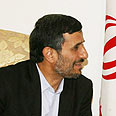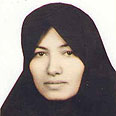

Iran, where a woman convicted of adultery has been sentenced to death by stoning, is likely to become a member of the board of the new UN agency to promote equality for women, prompting outrage from the US and human rights groups.
The General Assembly resolution adopted in July that merged four UN bodies dealing with women's issues into a single agency with greater clout to represent half the world's population calls for a 41-member executive board, with 35 members chosen by regional groups and six representing donor nations.
Mark Kornblau, spokesman for the US Mission, said Wednesday that Iran's membership "would send the wrong signal at the start of this exciting new initiative."
"UN Women is a vital new agency tasked with promoting gender equality and women's empowerment worldwide," he said. "We and many other countries are concerned by the negative implications of Iran's potential board memberships, given its poor record on human rights and the treatment of women.
"There are many qualified countries that would make positive and constructive contributions as board members," Kornblau said.
The stoning sentence against the 43-year-old woman, Sakineh Mohammadi Ashtiani, has raised an international outcry, embarrassing Iran.
A resolution adopted by the General Assembly last year expressed "deep concern" at Iran's increasing use of executions, death by stoning, torture, flogging and amputations, and its increasing discrimination against religious, ethnic and other minorities.
'Saudi Arabia would add insult to injury'
Philippe Bolopion, UN advocacy director for Human Rights Watch, said it was "puzzling that Iran would have the nerve to be a candidate for the board of UN Women".
"Having on top of it Saudi Arabia, a country with a track record on women's rights as horrendous as Iran's, would add insult to injury," he said.
Bolopion called their potential membership "an affront to women around the world who are placing their hopes in UN Women," but he expressed hope that the board's overall composition will ensure that neither country will be able to use their position to undermine the agency's work.
Cora Weiss, president of the Hague Appeal for Peace, said that if board membership "helps to influence Iran's attitude toward women then fine, but if Iran uses it to hold back our dreams and vision for equality then it's a disaster."
According to UN diplomats, the 10 countries selected by the Asian group for the board are Iran, Bangladesh, India, China, Malaysia, Indonesia, South Korea, Japan, Kazakhstan and Pakistan. Eastern Europe and Latin America have put forward contested slates, the diplomats said, speaking on condition of anonymity because the lists have not been made public.
Secretary-General Ban Ki-moon chose former Chilean president Michelle Bachelet to head UN Women, an appointment greeted with overwhelming approval by governments and women's groups who campaigned for four years to streamline the UN's activities promoting the status of women.
The resolution earmarks four seats from the 10 top donor nations and diplomats said the candidates are the United States, Britain, Spain and Norway. It allocated two seats to contributors from developing countries and diplomats said the candidates are Saudi Arabia and Mexico.
- Follow Ynetnews on Facebook















